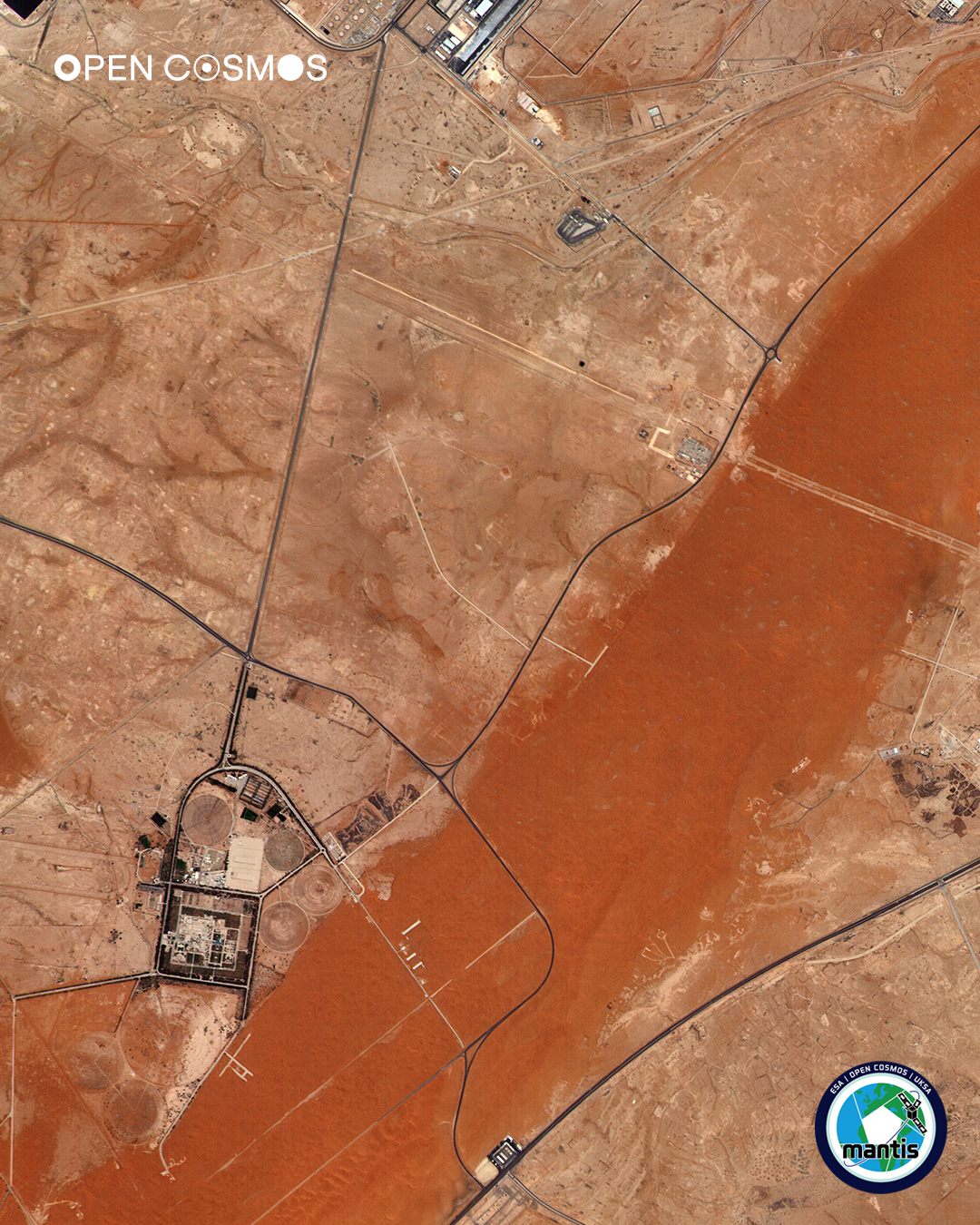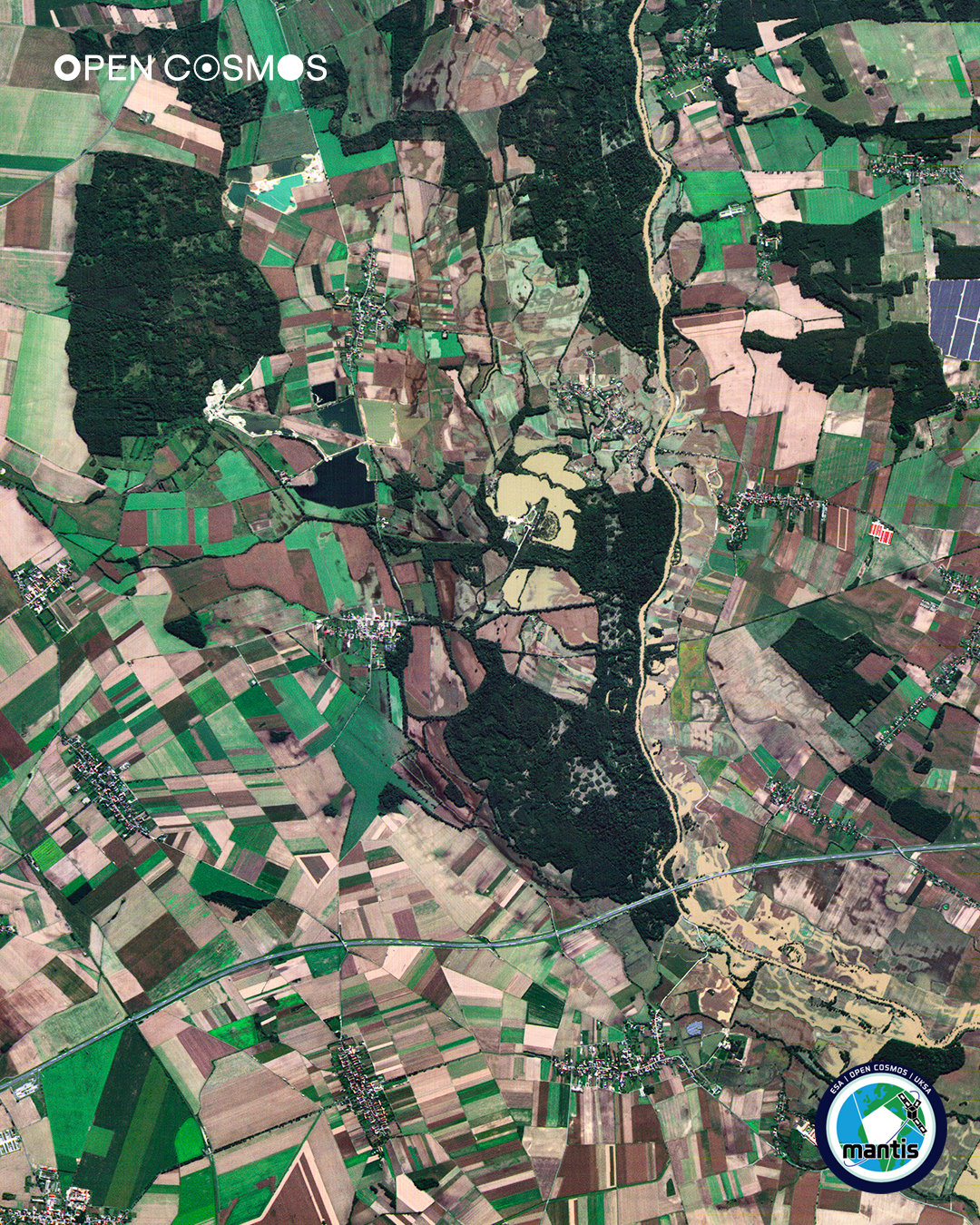pen Cosmos, the leading space company using space data to solve global challenges, is today celebrating the successful completion of its MANTIS mission – a two-year programme that delivered cutting-edge Earth Observation data and set a new benchmark for sustainable space operations.
Launched on 11 November 2023 aboard SpaceX’s Transporter-9, MANTIS was the first ESA InCubed satellite, backed by the UK Space Agency, and carried Satlantis’s iSIM90 high-resolution camera and a reconfigurable AI processor from Ubotica.
Landmark mission with significant impact
Over its two-year mission, MANTIS proved how a small, agile satellite could deliver outsized impact. It completed more than 10,000 orbits, capturing high-resolution daily imagery across half a million square kilometres. Its advanced optics and AI allow to transform raw imagery into actionable intelligence in near real time, faster and more efficiently than traditional missions, enabling energy, mining and environmental sectors to make faster, more informed decisions.
The mission also advanced the use of AI in orbit and validated new technologies, processes, and operational models together with IngeniArs and Ubotica that are now embedded into the wider OpenConstellation. OpenConstellation is the global Earth Observation constellation managed by Open Cosmos and used by governments, businesses, and organisations to tackle global challenges like climate change, resource management and environmental protection using space data.
Such was the advanced nature of the onboard technology that MANTIS managed to acquire and download imagery within just 10 days of launch, which was presented at the UK Space Expo in 2023.
Sustainable by design
MANTIS also demonstrated how innovation can go hand-in-hand with responsibility. Designed from the start with sustainability in mind, the satellite is planned to be permanently shut down at an altitude of 300 km and will safely de-integrate during atmospheric re-entry, leaving no debris behind. This means MANTIS not only contributed to better environmental monitoring on Earth, but also left space itself cleaner for future missions.
Rafel Jordà Siquier, founder and CEO of Open Cosmos, said: "MANTIS was a landmark mission for Open Cosmos. It proved our ability to deliver end-to-end Earth Observation with state-of-the-art AI and optical technology, and it delivered critical data for sectors tackling climate, energy and land management challenges. Its safe and sustainable end-of-life shows how responsible satellite design can protect the space environment. MANTIS leaves a powerful legacy – both in the data it produced and the standards it set for future missions."
Harshbir Sangha, Director of Missions and Capabilities at the UK Space Agency, said: “The MANTIS mission shows how strategic investment can turn advanced ideas into operational systems that deliver real benefits. Our support through ESA’s InCubed programme has strengthened the UK’s role in a competitive global market, opened new commercial opportunities, and addressed pressing challenges such as environmental monitoring. With Open Cosmos demonstrating outstanding technical expertise and leadership throughout the mission, MANTIS has built capability across the UK space sector and set the stage for future missions that will keep the UK leading in innovation in this rapidly expanding domain."
-01.svg)










